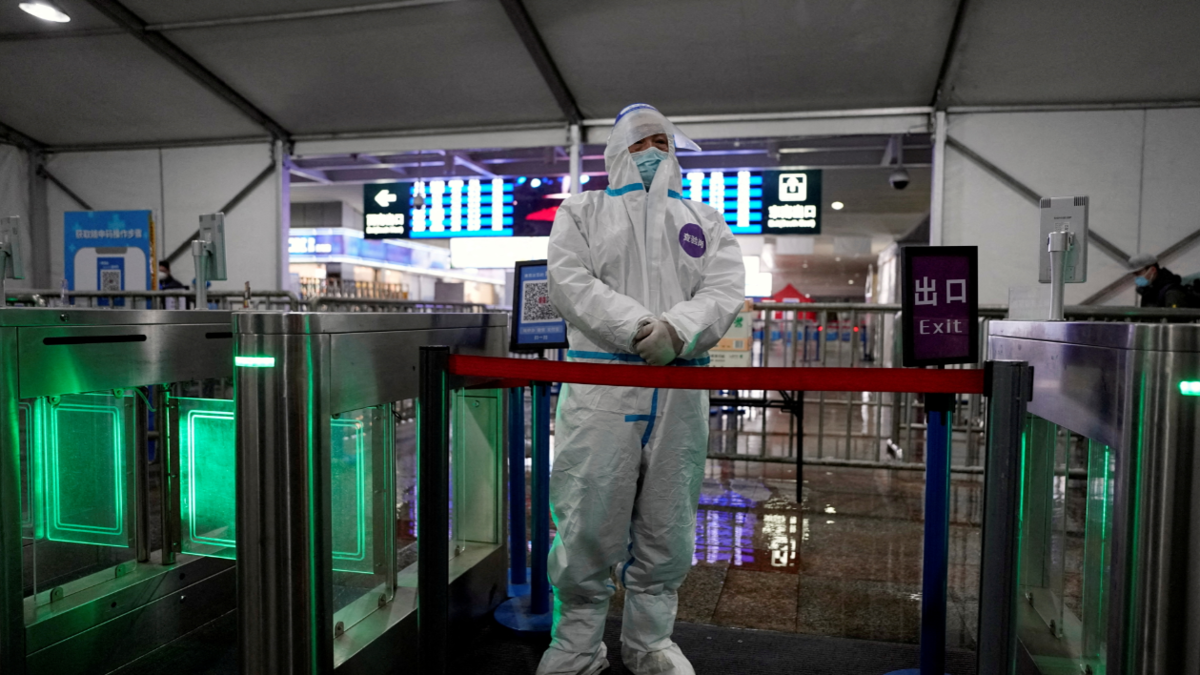Shanghai authorities on Wednesday called for calm as worried citizens swamped online grocery platforms to stock up on food over fears of impending lockdowns in a city struggling to halt a COVID-19 spike.
China is experiencing its worst COVID-19 outbreak since the start of the pandemic more than two years ago, with Shanghai posting record-high case counts as the highly transmissible omicron variant frustrates authorities.
Read the latest updates in our dedicated coronavirus section.
China’s biggest city on Wednesday reported 981 cases — all but four of them asymptomatic — a number that dwarfs any previous daily tally in the city and which is nearly one-fifth of the day’s national total.
Shanghai has responded to the outbreak with targeted residential lockdowns in areas with confirmed cases or close contacts.
There are growing public fears of more local lockdowns or stay-at-home orders for the entire city of roughly 25 million people.
Public concern has spiraled in the city in recent days and residents have taken to social media to air their frustrations.
They have complained about unclear government messaging, alarmist posts about expanding test sites and impending lockdowns, and the announcement that at least two indoor arenas in the city had been converted into mass-quarantine sites.
“We hope that everyone will not believe or spread rumors, and especially do not maliciously spread rumors that cause panic in society,” Wu Jinglei, head of Shanghai’s health commission said at a daily briefing.
Stores have seen bustling business as consumers stock up, and social media images circulated late Tuesday showing crowds of shoppers converging on outdoor vegetable markets. The images could not be independently verified.
Online shoppers on Wednesday posted complaints that platforms were crashing under the strain or that some goods were unavailable.
Spokeswoman for online grocery platform Dingdong Maicai, Chen Ying, acknowledged the company was under pressure as online demand had “surged.”
The coronavirus first emerged in the city of Wuhan in late 2019 but China has largely kept it under control through its tough zero-COVID strategy.
Authorities had recently suggested a lighter approach to minimize public and economic disruptions.
But omicron is straining those plans, particularly as Beijing nervously watches a deadly Hong Kong omicron surge that sparked panic buying and has claimed a high toll in the unvaccinated elderly.
Mainland health officials last week revealed that only around half of Chinese aged over 80 have been double-vaccinated.
Shanghai shut schools for nearly two weeks but has avoided the sort of citywide lockdown implemented in some northeastern cities hit by the current outbreak.
But the spectre of suddenly being confined at home for anything from two to 14 days has sowed public anxiety among Shanghai's population.
Chinese media reported that some financial traders in Shanghai and Shenzhen had been staying overnight in their offices to avoid being sequestered at home.
Read more:
China reports first two COVID-19 deaths in more than a year
China sets green hydrogen target for 2025, eyes widespread industrial use
China residents voice frustration over forced COVID testing in rare show of protest


 World3 years ago
World3 years ago
 World3 years ago
World3 years ago
 Business1 year ago
Business1 year ago
 Entertainment8 years ago
Entertainment8 years ago
 World8 years ago
World8 years ago
 Entertainment8 years ago
Entertainment8 years ago





